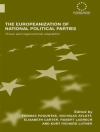There is inherent tension between the increasingly global focus of foreign investors and the continuing national focus of governments. Countries, particularly developing ones, compete to attract investment from global corporations, and they attach performance requirements to tilt the impact of those investments in their favor. This is because the host nations expect investment to raise growth levels, efficiency, and living standards. At the same time, the home countries of such corporations worry that their firms are not accorded fair and reciprocal treatment abroad. These issues have become a source of conflict among nations, one that could escalate considerably if an agreement is not soon reached.
Graham’s study analyzes the nature and depth of the international investment problem and its potential impact on the world economy and on economic relations among nations. He urges that current rules on foreign direct investment be enlarged and restructured via new international rules and institutional arrangements and offers two alternatives for doing so.
Circa l’autore
Edward M. Graham (1944–2007) was a senior fellow at the Peterson Institute from 1990 to 2007. He also taught concurrently as adjunct professor at Columbia University in New York. Previously he was an economist at the US Treasury and taught full-time in the business schools of several US universities (MIT, University of North Carolina Chapel Hill, Duke University, among others). While serving at the Treasury, he was seconded for two years to the Organization for Economic Cooperation and Development (OECD) in Paris. He also served as visiting or adjunct faculty at the University of Virginia, Charlottesville; Stanford University (Washington Program); The Johns Hopkins University; Seoul National University; Harvard University (John F. Kennedy School of Government); INSEAD (European Institute of Administration, Fontainebleau, France); and the University of Paris I (Pantheon/La Sorbonne).












